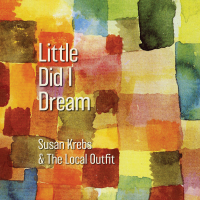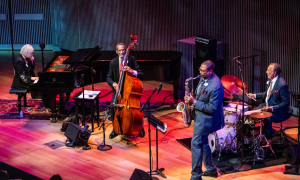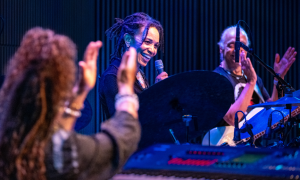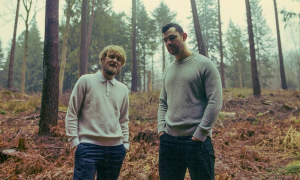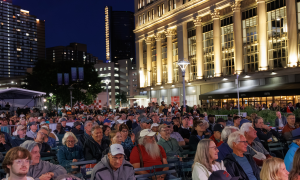Home » Jazz Articles » Live Review » Joe McPhee and Decoy: Cafe Oto, London, October 29, 2011
Joe McPhee and Decoy: Cafe Oto, London, October 29, 2011


Peter Brötzmann
woodwinds1941 - 2023
Decoy, comprising Hammond B3 organist

Alexander Hawkins
pianob.1981

John Edwards
bass, acoustic
Steve Noble
drumsb.1960

Sun Ra
piano1914 - 1993
Even the opening of the evening was a case in point. Noble initiated an ominous mallet tattoo, accentuated by Edwards' darkly bowed bass. As if prearranged, McPhee and Hawkins suddenly entered in loose unison. McPhee essayed a choked impassioned alto saxophone outpouring over the dense interplay. When he paused, the rhythm pairing eased into a rapid clip launching Hawkins in a flurry of skittering organ sprays. And they continued in the same vein, listening carefully but interacting with inspired abandon.
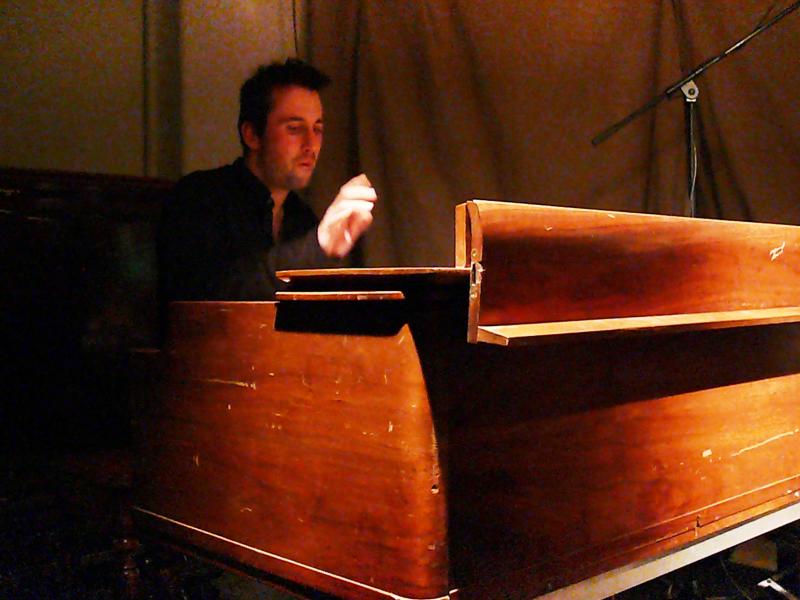
Alexander Hawkins
Already placing in polls on piano, Hawkins now looks on course to rehabilitate the Hammond organ at the wilder reaches of improv. He pulled out a wide range of inventive textures, deployed with acute sensitivity, whether supporting the horn man with the merest whisper or buoying up the ensemble with swirling sonic washes. There were more visceral moments, too, as when provoked into strong arm tactics involving two-handed pawing at the keyboard, and hands, elbows and forearm smashes creating dissonant clusters, frantic wailing and surging oceanic swells. Together with Edwards and Noble, the organist fashioned an unpredictable commentary full of unexpected accents, outbursts and interjections which elaborated rather than hindered the musical narrative.
Decoy displayed another important trait: its propensity to slip into grooves, however briefly, before subverting expectations with sudden depth charges. While most often sighted in improvised circles, both Edwards and Noble brought extensive rЁҰsumЁҰs into play. Edwards has become almost ubiquitous on the London scene, and a fixture at European festivals. He counts

Evan Parker
saxophone, sopranob.1944

Alan Wilkinson
b.1954
Lol Coxhill
saxophone, sopranob.1932
Noble's drive and syncopation really came into their own with yet more of his wonderful work with small untethered cymbals, held in his hand or placed on the heads of his drums. He drew endless variations in sound, reverberation and texture all melded into a narrative flow evoking a one man percussion band or a gamelan orchestra. Edwards matched him in terms of percussiveness and propulsion, but also showed his own special strain of combustive energy. In one solo his wavering chuckling bowing burst into an explosion of syncopated scrapes, taps, slaps and plucks inducing Noble to join in a marvelous percussive duet. Earlier he had inserted his bow between the strings and the fret board for a wonderfully buzzy resonance.
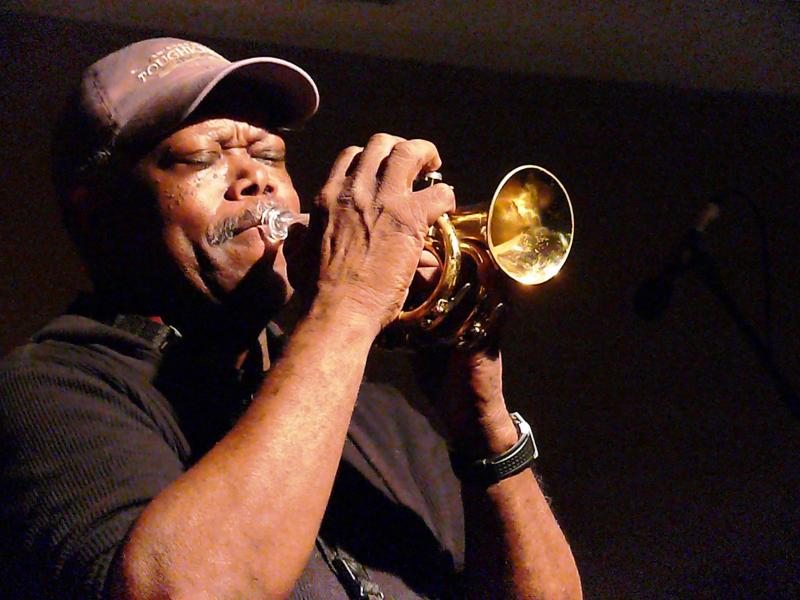
Joe McPhee
McPhee remains a vital force. His impact on both alto saxophone and pocket trumpet was little short of astonishing. He has forged a personal amalgam of extemporized melody infused with a melancholy poignancy and coruscating

Albert Ayler
saxophone, tenor1936 - 1970
One of the highlights came at the start of the second set where McPhee's breathy pocket trumpet evolved into heraldic lines as the initially pointillist chiaroscuro gradually coalesced until Noble's tone color play and stick-across-cymbal squeals conjoined in an exuberant passage. Another standout moment came later, courtesy of the reedman on alto saxophone, as he accompanied himself with an anguished vocal cry, part blown through the horn, which hovered somewhere halfway between speech and music. It carried a volcanic emotional charge and prompted another intense communal excursion.
Happily both this gig and the following night were recorded, and between them should yield an outstanding follow-up to this winning combination's inaugural release.
Tags
Comments
PREVIOUS / NEXT
Support All About Jazz
 All About Jazz has been a pillar of jazz since 1995, championing it as an art form and, more importantly, supporting the musicians who make it. Our enduring commitment has made "AAJ" one of the most culturally important websites of its kind, read by hundreds of thousands of fans, musicians and industry figures every month.
All About Jazz has been a pillar of jazz since 1995, championing it as an art form and, more importantly, supporting the musicians who make it. Our enduring commitment has made "AAJ" one of the most culturally important websites of its kind, read by hundreds of thousands of fans, musicians and industry figures every month.



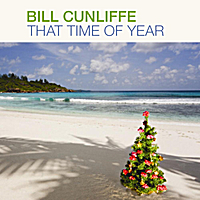
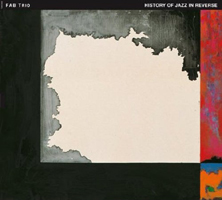

 Buy Now
Buy Now



